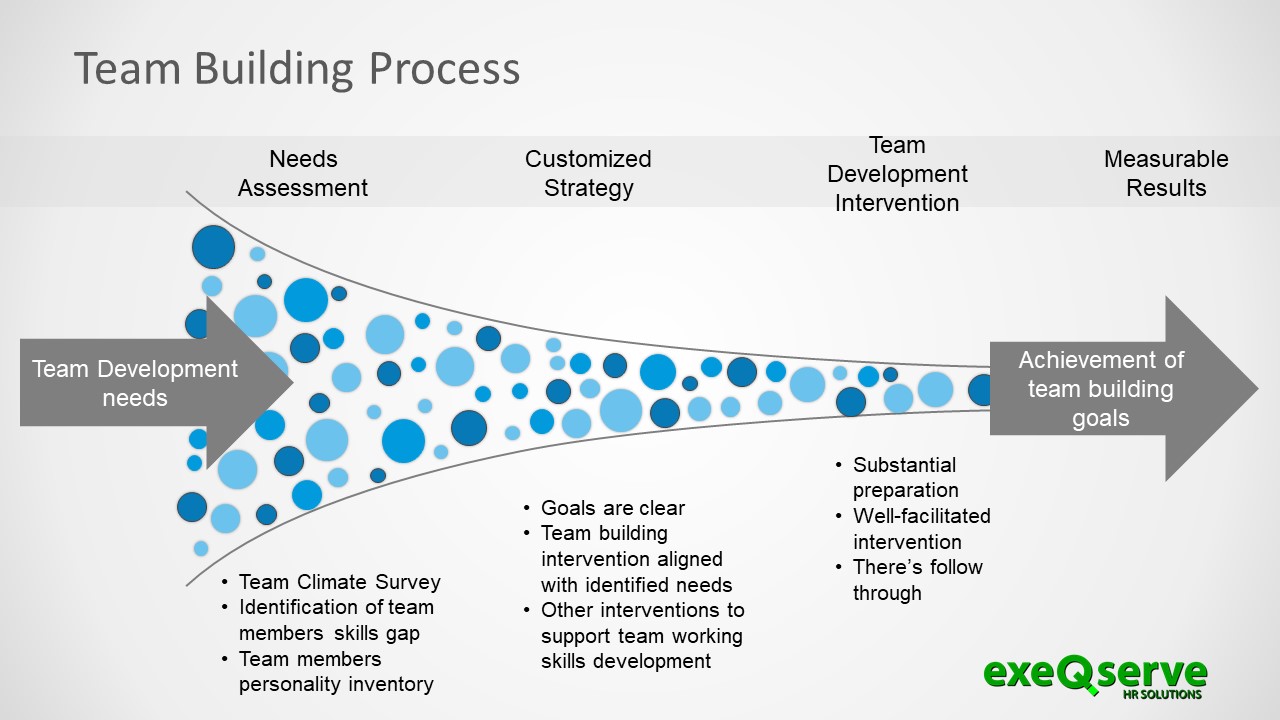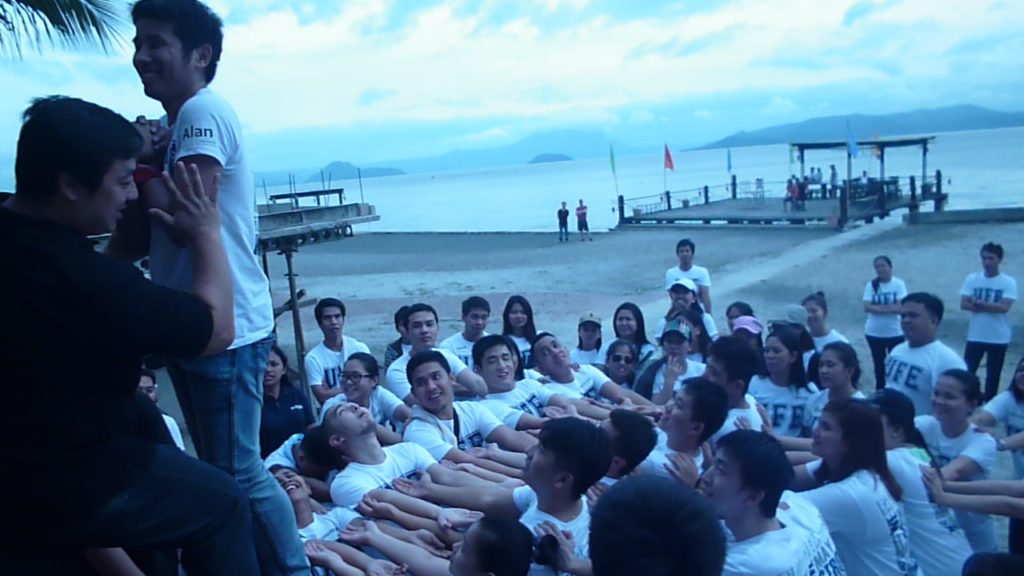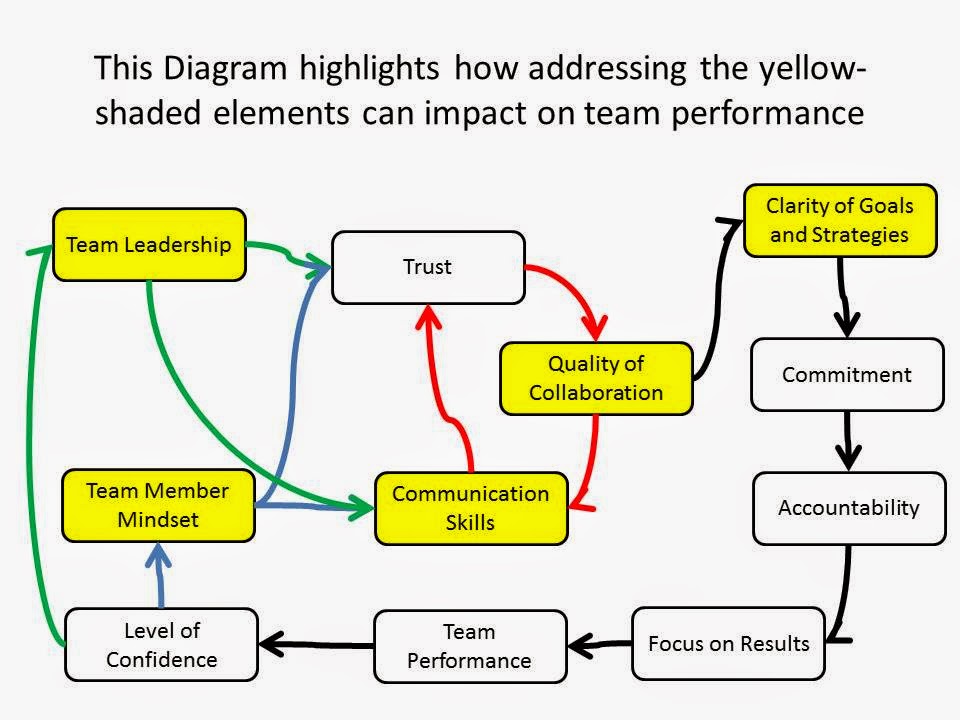The quick answer is yes, it can.
 When you tell your team, you are going to have a team building event, you get different kinds of reactions depending on how many times you’ve done it. I can enumerate them based on personal experience:
When you tell your team, you are going to have a team building event, you get different kinds of reactions depending on how many times you’ve done it. I can enumerate them based on personal experience:
- If it is your team’s first time, it might elicit excitement and hopefulness that whatever frustrates them about the team will finally be resolved.
- If you’ve been doing it several times but nothing really changed, you might see some rolling of eyes, and people making excuses that they can’t come.
There are a number of reasons why number 2 can happen and how it can be avoided. A good team building intervention can really help your team develop the needed cohesiveness and focus mind and energy on working together to achieve a common goal. However, there are conditions to successful team building.
Here are some pitfalls and how to avoid them:
 Mistaking team bonding for team building. Some companies allocate budget for what they label as team building. What usually happens is group members either have dinner together or go offsite for some R&R. I’d like to think that this is helpful in improving familiarity among members which is an essential element in team building. However, it seldom goes further than that. Without structure and strategy for removing real barriers to teamwork, this can frustrate members and start thinking that it is waste of time. You know that this is happening when people start begging off. But wait, don’t cancel that budget yet, maybe you can strategize your team bonding event so that you can use it to really build your team. Please read on.
Mistaking team bonding for team building. Some companies allocate budget for what they label as team building. What usually happens is group members either have dinner together or go offsite for some R&R. I’d like to think that this is helpful in improving familiarity among members which is an essential element in team building. However, it seldom goes further than that. Without structure and strategy for removing real barriers to teamwork, this can frustrate members and start thinking that it is waste of time. You know that this is happening when people start begging off. But wait, don’t cancel that budget yet, maybe you can strategize your team bonding event so that you can use it to really build your team. Please read on.
Thinking that team building is a set of games that you play to become a better team. This is becoming a trend nowadays. You contact a resort for team building, they offer you the services of their in-house facilitators who are basically game masters, who guide your team into playing the game, maybe make a point or two about teamwork and that’s about it. Your team might feel a bit of euphoria brought about by the excitement of playing games. They might momentarily forget that there are some complex hindrances that exist in the office which the team building games failed to address. Learning games are excellent experiential way of learning. But these learning games need to be a part of a well-designed intervention that came from well-conceptualized framework and identified team building needs. This is often not the case in many events which leads to a lot of frustrations back in the office. If you are availing of the services of a facilitator, I recommend that you inquire about the following:
- How they intend to identify your team’s team-working gaps
- What theories or conceptual framework they use in designing the program
- How is the program designed so that follow through mechanisms are in place
- How is the team building event designed so that you are not just playing games but establishing rules of engagement that lead to follow through in the workplace?

Thinking that a team building event or a team building facilitator can build your team for you. You can’t outsource team building. You can outsource the strategy development and the launching of the effort but team building is for leaders. I always tell my clients that a team building intervention is a leadership training in disguise. It’s the leaders who build the team. The team building process does not begin or end with the team building event. The event is a launchpad so to speak. The leader needs to pilot the team towards the application of whatever commitments are made during the event. One of the biggest frustrations after team building is the leader’s inability to follow through. When the team building fails, people are quick to blame that the event is a failure it truly was a leadership failure. When we engage our clients in team building, we talk to the leaders and guide them through the process. Our most successful interventions are teams with leaders who succeeded in following through with the group’s team building commitment.
Lack of leadership will not be saved by team building. Poor teamwork is most often a sign of poor leadership. When the leader is ill-equipped to lead, the team building event will frustrate the members and make them cynical about its usefulness, and I don’t blame them. When a team building event raises your hope only to be dashed by inability of leaders to lead the team, that’s exactly how you’ll feel. My recommendation is this. Have whoever will run your team building event run a diagnosis of the team. Let them find out what the real hindrance to teamwork is. If they find that leadership is getting in the way, start with that. Send the leaders of the team to a leadership training. Preferably one that covers the leaders’ role in building a team and what they need to do at each stage of the team development process.
 Thinking that all they need is a team building event and everything will be fine. There are skills necessary for effective teamworking. A team building intervention should be a part of a human resource and organization development intervention aimed at improving organizational culture. It should be a part of a program composed of separate but connected interventions on leadership, communication, conflict management, team learning and others.
Thinking that all they need is a team building event and everything will be fine. There are skills necessary for effective teamworking. A team building intervention should be a part of a human resource and organization development intervention aimed at improving organizational culture. It should be a part of a program composed of separate but connected interventions on leadership, communication, conflict management, team learning and others.
A good team building intervention is a well-designed one. It comes from a thorough assessment of the team’s current situation and made part of an OD intervention journey. It should be facilitated by professionals who are highly skilled not just in facilitating games but using this type of intervention to help improve collaboration, coordination, and cooperation among team members. It should allow for leadership follow through and delivers measurable result for the team.
Want help on how to do this for your team? Talk to us!








